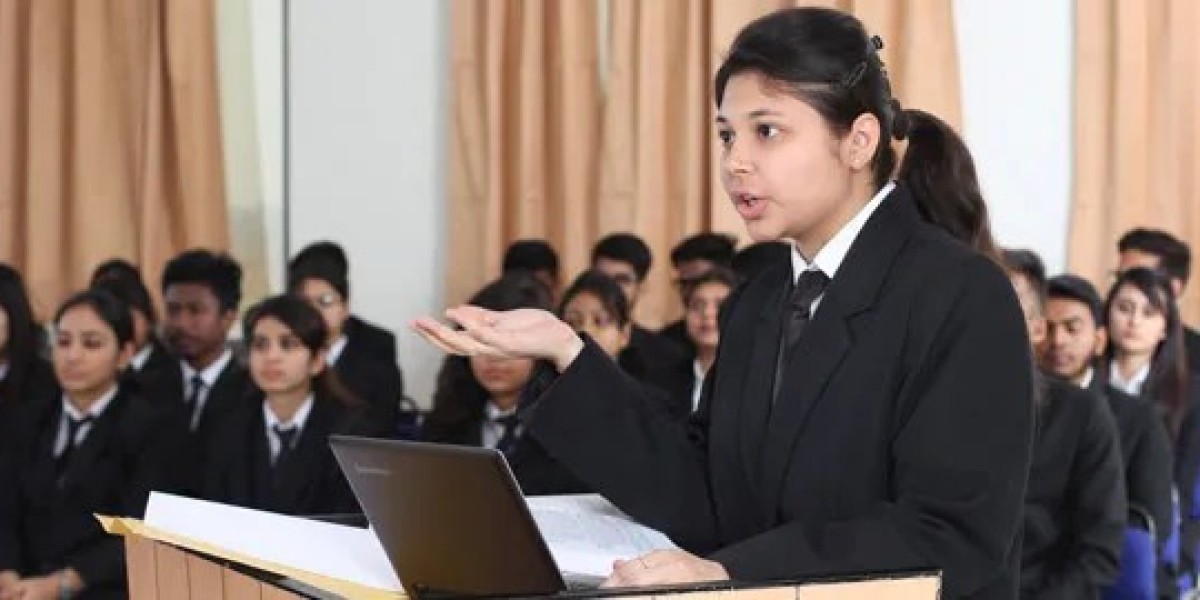You will gain advanced theoretical knowledge of law through the BA LLB integrated course, but you must also learn how to apply it to real-world scenarios for resolving disputes. In this regard, moot courts play a significant role.
Typically, moot courts are crucial for the holistic development of students and their knowledge, which is why greater emphasis is given to them in the modern BA LLB Hons programs. You gain essential experience in the proceeding of a courtroom and prepare your arguments accordingly in a more comprehensive manner.
Understanding moot courts
In simple words, moot courts can be defined as simulated courtroom environments. Aspiring lawyers practice in this environment to refine their courtroom skills with better advocacy, arguments, and authority. Overall, these courts transform students into legal professionals and lawyers with additional confidence and competence.
Integrating moot courts in legal education helps students perform different roles and deliver functional and productive arguments and presentations through diverse simulation training.
The diverse set of skills developed
The moot courts help students a great deal in real-life situations because the disputes they handle in such simulated courtrooms resemble real-life cases. Furthermore, this specific approach helps students in developing their research skills in legal fields.
In addition, practising in moot courts helps students develop their oratory or communication skills as well as more evidence to support their arguments and ensure success. Students can also develop their writing skills by taking part in these moot courts. This further helps them while playing diverse roles as clerks, advocates, or judges.
A comprehensive learning experience
The legal education of students is more holistic since the moot courts also help them learn new and better ways to analyse cases more precisely. They also get familiar with counselling clients with different issues and disputes and come up with better ideas to resolve them.
Moot courts also teach students about the importance of research and the precise ways to conduct extensive research on a specific case that will help in presenting their arguments more convincingly. They gain practical experience in participating in and presenting their drafts and other legal documents through proper channels and in the right ways.
Develop research skills
Students learn about the different etiquette of a court that they must follow, as well as the set of formalities that they have to abide by when they participate in these moot courts during their study. They become familiar with the different statutes of law and gain in-depth insights into different case laws and their patterns.
Additionally, they learn the precise ways to draft briefs and memorials for different cases, ensuring precision and detailing of facts and evidence. They know the exact format to follow and the right structure for every legal document that is accepted in a real court.
Overall, they develop the necessary skills to refine the details of each case, and their strong analytical skills help them develop more convincing arguments.
Develop communication skills and advocacy
The concept of moot courts helps students develop the communication skills that are necessary for advocacy. These moot courts act as the right platform to showcase their verbal skills and, at the same time, refine their non-verbal skills. Both these skills help in refining their argument presentation and driving favourable judgment.
They can present their cases more confidently and influence the jury panel and judge with strong, supportive arguments. Their refined speaking and communication skills help in their advocacy, further supported by their strong and authoritative tone and body language.
Conclusion
In conclusion, moot courts help students be more confident and composed while presenting their cases or arguments in a real court. They are familiar with the norms and formalities of a courtroom and enhance their chances of success through their refined research and presentation skills.








